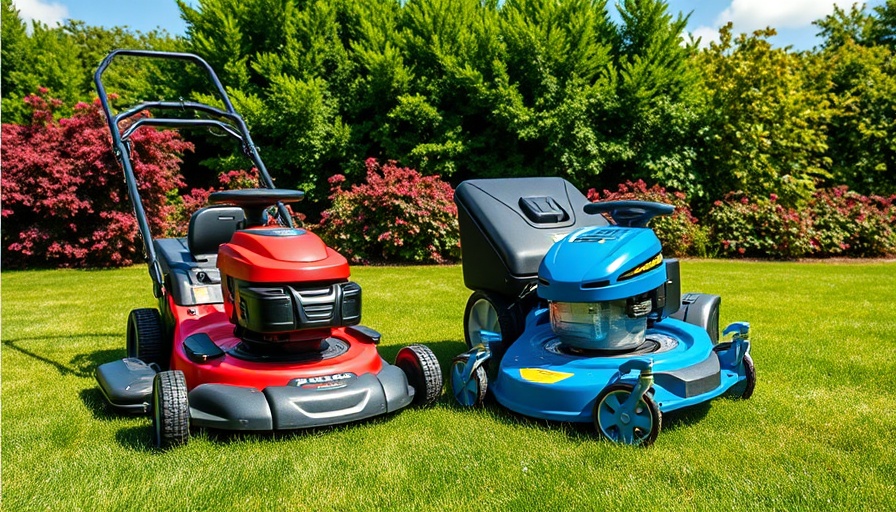
Understanding Soil pH: The Foundation of a Thriving Lawn
As any homeowner knows, a healthy lawn begins with the soil. But how often do we stop to consider the pH of that soil? The pH level, which measures the acidity or alkalinity of the ground beneath us, acts as a key indicator for nutrient availability essential for plant growth. Acidic soils, where the pH is below 7, can affect nutrient uptake, while alkaline soils, which have a pH above 7, can too. In fact, your lawn could be thriving or struggling based on this simple measure. A neutral pH of 7.0 is ideal, ensuring essential nutrients like nitrogen, phosphorus, and potassium are available to plants, creating a vibrant backyard landscape.
Why Soil pH Matters for Plant Health
Understanding how soil pH plays a role in plant health is crucial for homeowners and small property owners alike. When the pH is imbalanced, nutrient deficiencies can occur. For example, a low pH can make vital nutrients like nitrogen and potassium less available, leading to stunted growth and yellowing leaves. Conversely, an overly high pH might cause potential soil toxins to rise, threatening plant health. Measuring and altering soil pH is a step toward ensuring your lawn and garden remain lush and vibrant.
How to Measure Soil pH and Amend It
Before you can alter the soil pH, you need to measure it. Fortunately, there are a range of tools available, from simple, cost-effective pH test strips to more sophisticated digital pH meters. For the DIY enthusiast, testing soil samples at home is a manageable task and allows for a personalized approach. If a sample indicates that your soil is too acidic, adding lime or wood ash can help increase its pH. If it's too alkaline, sulfur or iron sulfate can lower it. These amendments will restore balance, helping to revitalize your lawn.
Practical Tips for Adjusting Soil pH: A Step-by-Step Guide
Adjusting your soil pH doesn’t need to be a complicated affair. Here are some actionable insights to guide you:
- Test your soil: Use a DIY kit or send samples to a local extension service.
- Choose your amendments wisely: For acidic soils, consider lime; for alkaline, try sulfur.
- Apply evenly: Distribute the amendments evenly across your lawn.
- Water your lawn: This helps activate the amendments and allows them to integrate into the soil.
- Monitor changes: Periodically retest your soil to track pH changes and adjust your amendments as necessary.
Soil pH and Seasonal Changes: Be Prepared
As seasons shift, so too can the soil pH levels. Spring rains can wash away alkaline materials, while summer dryness may cause increased evaporation, impacting nutrient availability. Stay proactive in checking and adjusting your soil pH as climate patterns evolve in your region. Understanding these trends not only enhances your lawn health but also empowers you to make informed decisions about the products and equipment you use in maintaining your yard.
Addressing Common Misconceptions About Soil pH
Half-truths abound when it comes to soil pH. One common myth is that all plants thrive in neutral soil. In reality, different plants prefer different pH levels. For instance, azaleas and blueberries flourish in acidic soil, while many vegetables prefer neutral to slightly alkaline conditions. This variability highlights the need for tailored assessments rather than a one-size-fits-all approach.
Take the First Step Towards a Thriving Lawn
Investing in your soil’s pH is one of the best actions you can take as a property owner. Healthy soil leads to robust plants, lush lawns, and ultimately, a beautiful outdoor space for you and your loved ones. By testing and amending your soil pH, you're not only fostering growth but also enhancing the beauty of your property. Don’t hesitate — carry out a soil test today, and start on the path to a flourishing lawn!
 Add Row
Add Row 
 Add
Add 


 Add Row
Add Row  Add
Add 
Write A Comment